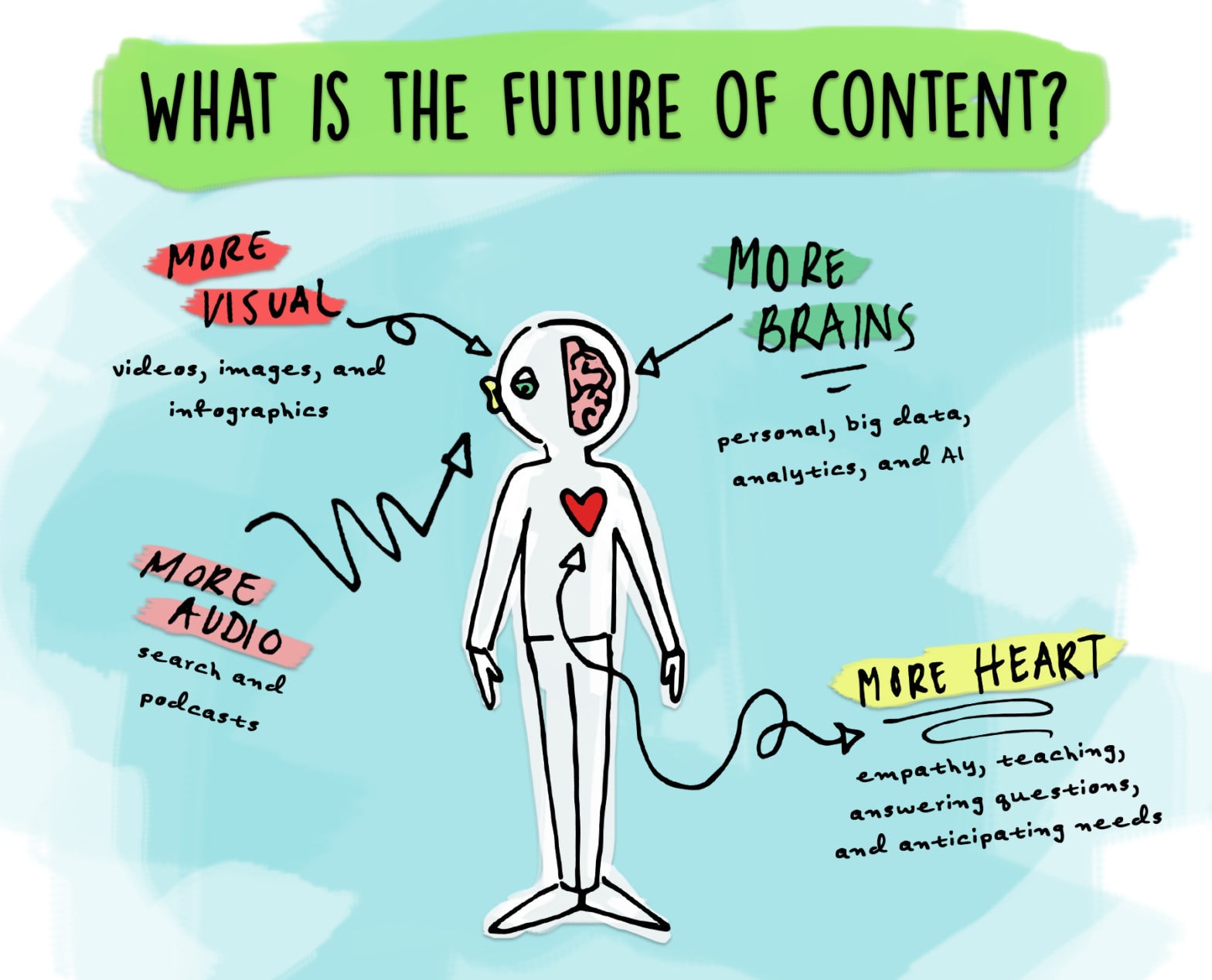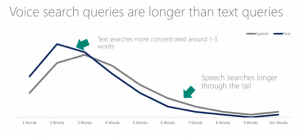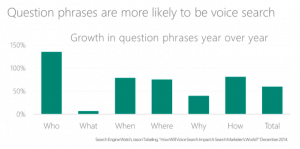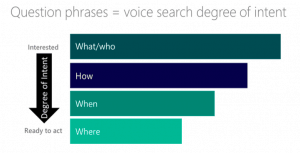
Top 100 Content Marketing Question: What is the future of content marketing?
More visuals
People’s attention spans are short. If you can’t hook your audience in 7 seconds, people may not get your message.
Visual content is quicker to absorb than text. Visuals take less effort and offer more reward.
That’s why visuals break through, they’re better remembered, and they’re more liked and shared on social media.
That’s why more and more content will consist of images: photos, cartoons, graphs, illustrations, infographics, and videos.

Visual content without words transcends language and culture differences, speaking in the global, human language of pictures.
Immersive visual content such as augmented reality (AR) and virtual reality (VR) is growing by leaps and bounds. AR and VR content will soon be commonplace.
More audio
To convince someone to act, you need to evoke an emotional response. See “The Science of What Makes People Care.”
Audio may be the best medium for communicating emotions. Face-to-face conversations, phone calls, and voice mails are way more emotional than emails or texts.
To test this idea, turn off the sound on a movie you love. How much emotional impact is lost?
Podcasts grab people by the ears. The best podcasts capture and convey emotional content – and can be consumed as people multitask.
Search engines are sprouting ears:
- More than half of people have performed web searches by voice.
- More than 20% of Google searches are voice searches.
- Voice searches lead to action 30 times more than text searches, says Google.
As the technology rapidly improves, more and more web searches will be done by audio going forward. Alexa, Siri, OK Google, Cortana, and competitors will extract the words you speak, and recognize patterns to:
- Put your words into the context of your location and recent searches
- Deduce the underlying intent of your searches
- Even read your emotions.
ComScore predicts that most searches will be voice searches by 2020. Here are ideas on how to prepare your content for voice search.
Most text searches are 1 to 3 words. But voice searches use more words.

Voice searches are more likely to be in the form of questions.
That’s why it’s so important to find out now: What are your customers’ Top 100 Questions?

Here’s how to gather, analyze and extract meaning from customer questions, so you can create content that’s even more relevant and resonant.
Customer questions signal where buyers are in their journeys. Are your customers just dreaming, or ready to buy now?
People who do voice searches are nearly ready to buy.

More brains
Content will harness big data, analytics, and artificial intelligence (AI) to increase relevance by:
- Personalization – not just names, but topics, experiences, media preferences, and more.
- Pattern recognition – which links you click, what time of the day and week, from which sources.
- Identity – ferreting out which of your interests define your membership in a tribe.

These brainy tools can answer certain questions very well: who, what, when, and how very well. Unfortunately, they can’t answer why.
Why mystifies machines. Why takes human understanding.
More heart
Should you worry that big data, analytics, and AI will take marketing jobs away? No. Why?
Because all the brainy, brawny tools work best when they’re directed by humans. People have the empathy to ask insightful questions, develop hypotheses and test them.

Great content takes to heart:
- The heart to empathize with buyers’ pain points, obstacles, and needs – and solve them.
- The heart to teach before you sell.
- The heart to answer every question, even so-called “dumb questions.”
- The heart and imagination to anticipate your customers’ next needs.
The great content of the future will have more visuals, more audio, more brains, more heart. Put them together to win more customers, more revenue, more results, and better customer experiences.
What will the future bring in content marketing?
Winners will:
- Listen before they yell.
- Show before they tell.
- Teach before they sell.
In a nutshell, that’s the future of content.
Here are predictions that content marketing thought leaders made about 2018.

“What is the future of content?” is one of the Top 100 Questions on content marketing.





